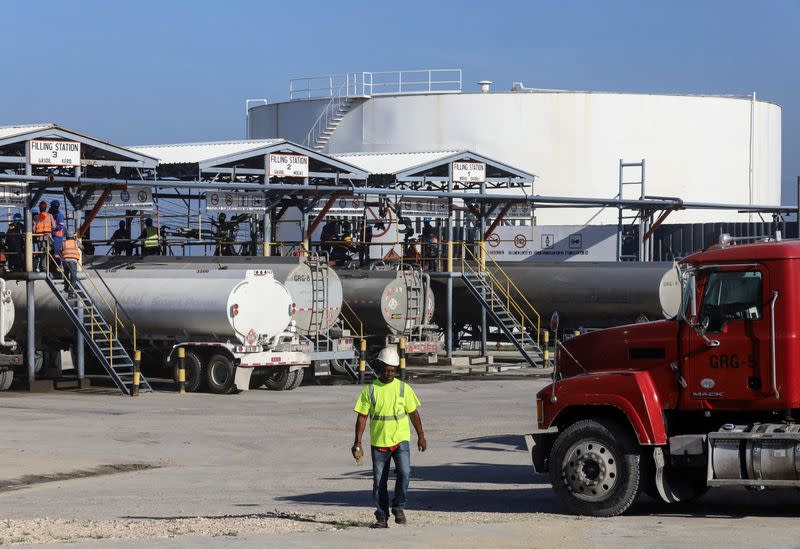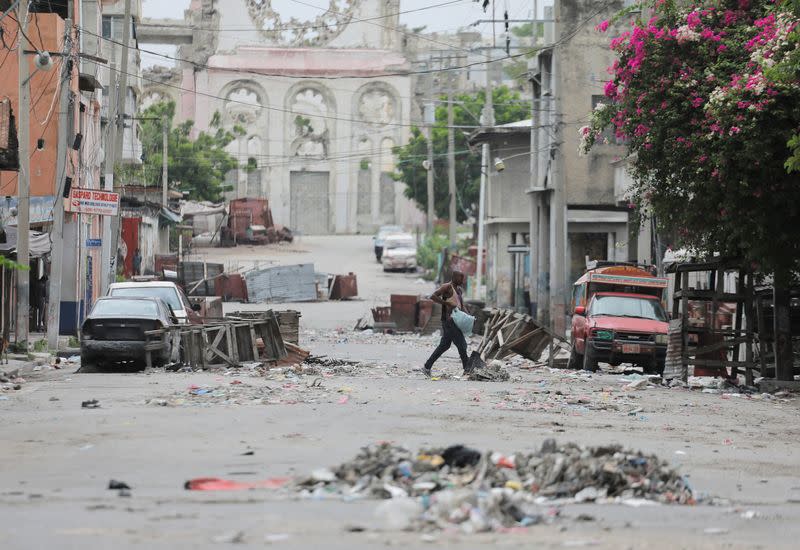Gang blockade cripples Haiti fuel supplies, hospitals prepare to close
By Harold Isaac and Brian Ellsworth
PORT-AU-PRINCE (Reuters) - A gang blockade of Haiti's principal fuel terminal has crippled day-to-day activities in the Caribbean nation and now threatens to force the closure of hospitals that rely on diesel generators for electricity.
Port-au-Prince gangs in a brazen move this month dug trenches and littered shipping containers at entrances to the Varreux terminal to protest a Sept 11 announcement that the government would cut fuel subsidies due to their high cost.
"Some hospitals are unable to admit new patients and are preparing to close," wrote United Nations children's agency UNICEF in a statement on Monday, adding that three quarters of major hospitals were affected by the shortages.
"Providing sterile conditions for medical interventions is becoming more challenging and conserving vaccines due to the disruption to cold-chain facilities has become problematic."
Due to a lack of power, radio station Magik 9 on Tuesday had to halt its morning programming as it was conducting interviews regarding the critical situation created by fuel shortages, one of the station's directors wrote on Twitter.
Electricity supply from Haiti's grid is so unsteady that most businesses and offices cannot maintain operations without power provided by diesel generators.
Around 30% of antennas operated by Digicel, Haiti's largest mobile phone provider, were out of fuel, Digicel Chairman Maarten Boute wrote on Twitter on Tuesday.
The plan to hike fuel prices unleashed anger among Haitians already struggling with soaring prices, triggering protests and street violence that devolved into looting.
A World Food Programme official on Monday said UN agencies and non-profit organizations lost some $6 million worth of relief supplies during the violence.
Haiti's gang violence has accelerated since last year's assassination of President Jovenel Moise, with kidnappings becoming increasingly frequent and many areas of the country effectively ruled by gangs.
(Reporting by Harold Isaac in Port-au-Prince and Brian Ellsworth in Caracas; Editing by Bill Berkrot)



